Filter by
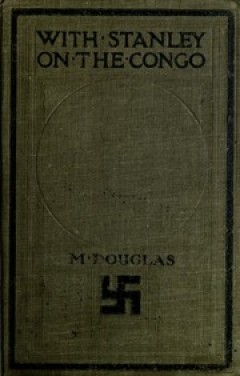
With Stanley on the Congo
The book relates to Sir Henry Morton Stanley, a Welsh journalist and explorer. Stanley is known for his exploration of central Africa, his search for missionary and explorer David Livingstone and his search for the source of the Nile. Historical - United Kingdom & Africa. Biographical interest.
- Edition
- -
- ISBN/ISSN
- -
- Collation
- 215 p
- Series Title
- -
- Call Number
- 967.24
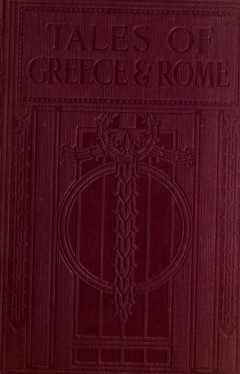
Peter Parley's Tales of Greece and Rome
- Edition
- -
- ISBN/ISSN
- -
- Collation
- vi, 224 p., [8] leaves of plates :
- Series Title
- -
- Call Number
- 900 GOO p
- Edition
- -
- ISBN/ISSN
- -
- Collation
- vi, 224 p., [8] leaves of plates :
- Series Title
- -
- Call Number
- 900 GOO p
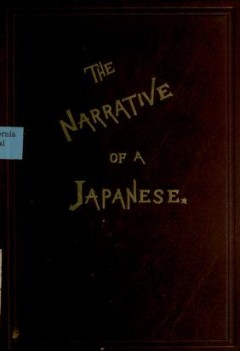
The narrative of a Japanese volume 1 : what he has seen and the people he has…
- Edition
- -
- ISBN/ISSN
- -
- Collation
- 2 v., 7 leaves of plates :,Vol. 1 has subtitle: From the time of his being castaway in 1850 down to
- Series Title
- -
- Call Number
- 954 HEC n
- Edition
- -
- ISBN/ISSN
- -
- Collation
- 2 v., 7 leaves of plates :,Vol. 1 has subtitle: From the time of his being castaway in 1850 down to
- Series Title
- -
- Call Number
- 954 HEC n
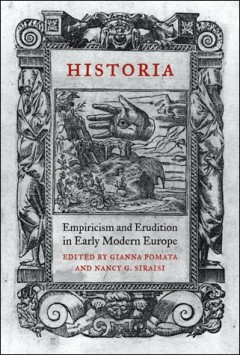
Historia : empiricism and erudition in early modern Europe
Essays examine how the genre of historia reflects connections between the study of nature and the study of culture in early modern scholarly pursuits. The early modern genre of historia connected the study of nature and the study of culture from the early Renaissance to the eighteenth century. The ubiquity of historia as a descriptive method across a variety of disciplines—including natura…
- Edition
- -
- ISBN/ISSN
- 9780262281775
- Collation
- 1 online resource (viii, 490 pages) : illustrations.
- Series Title
- -
- Call Number
- 900 POM h
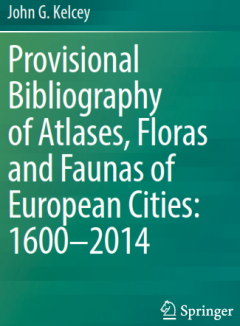
Provisional Bibliography of Atlases, Floras and Faunas of European Cities: 16…
Daftar pustaka ini mempunyai masa kehamilan yang sangat lama; Keingintahuan awal untuk mengetahui seberapa banyak atau sedikit informasi yang ada mengenai status dan distribusi tumbuhan, hewan, dan organisme lain di wilayah perkotaan di seluruh Eropa beberapa waktu kemudian dilengkapi dengan perkembangan tiga kepentingan utama lainnya. Pertama, keterlibatan profesional dalam perencanaan, desain…
- Edition
- -
- ISBN/ISSN
- 978-3-319-31120-3
- Collation
- -
- Series Title
- -
- Call Number
- 910.9 KEL p

Writing Self, Writing Empire: Chandar Bhan Brahman and the Cultural World of …
Writing Self, Writing Empire examines the life, career, and writings of the Mughal state secretary, or munshi, Chandar Bhan Brahman (d. ca. 1670), one of the great Indo-Persian poets and prose stylists of early modern South Asia. Chandar Bhan’s life spanned the reigns of four emperors: Akbar (1556–1605), Jahangir (1605–1627), Shah Jahan (1628–1658), and Aurangzeb ‘Alamgir (1658–1707…
- Edition
- Ed. 1
- ISBN/ISSN
- 9780520961685
- Collation
- -
- Series Title
- -
- Call Number
- 927 KIN w

Borelli's on the Movement of Animals - on the Natural Motions Resulting from …
This volume provides an introduction to Borelli’s theory on the movement of animals and describes his theory and scientific experiments relating to the natural movements of bodies in a fluid environment. It describes in great detail why and how bodies which present with different magnitudes, weights and shapes move at a greater or a smaller velocity in certain proportion in the fluid environm…
- Edition
- 1
- ISBN/ISSN
- 978-3-319-08536-4
- Collation
- XIV, 292
- Series Title
- Studies in History and Philosophy of Science
- Call Number
- 900
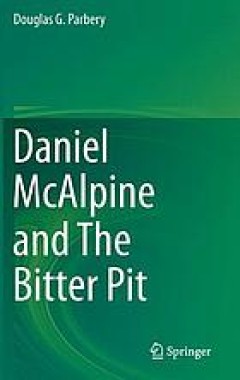
Daniel McAlpine and the Bitter Pit
This book is a biography of a scientist who pioneered the development of plant pathology in Australia in the 19th and early 20th century, and was internationally acclaimed. After 20 years as a plant pathologist, he was asked to find the cause and cure of a serious physiological disorder of apples. While the cause eluded him, and everyone else for another 60 years, he again won international gra…
- Edition
- 1
- ISBN/ISSN
- 9783319095516
- Collation
- XXI, 252
- Series Title
- -
- Call Number
- 994
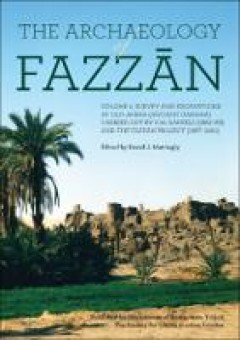
The Archaeology of Fazzan, Volume 4
This is the concluding volume of the Archaeology of Fazzān series, bringing to press the combined results of two Anglo-Libyan projects in southern Libya: the pioneering work of Charles Daniels between 1958 and 1977 and the Fazzān Project directed by David Mattingly between 1997 and 2001. The investigations carried out by these two projects allow an entirely new reconstruction and understandin…
- Edition
- -
- ISBN/ISSN
- 9781914268076
- Collation
- -
- Series Title
- -
- Call Number
- 930.1

Borelli's on the Movement of Animals - on the Force of Percussion
This volume provides an introduction to Borelli’s theory on the movement of animals and demonstrates the nature of the energy of percussion, its causes, properties and effects. Building on and moving away from the theory of mechanics as formulated by Aristotle and Galileo and countering objections expressed by Stephani degli Angeli among others, Borelli presents a completely mechanical accoun…
- Edition
- 1
- ISBN/ISSN
- 978-3-319-08497-8
- Collation
- XXXVIII, 220
- Series Title
- -
- Call Number
- 900
 Computer Science, Information & General Works
Computer Science, Information & General Works  Philosophy & Psychology
Philosophy & Psychology  Religion
Religion  Social Sciences
Social Sciences  Language
Language  Pure Science
Pure Science  Applied Sciences
Applied Sciences  Art & Recreation
Art & Recreation  Literature
Literature  History & Geography
History & Geography